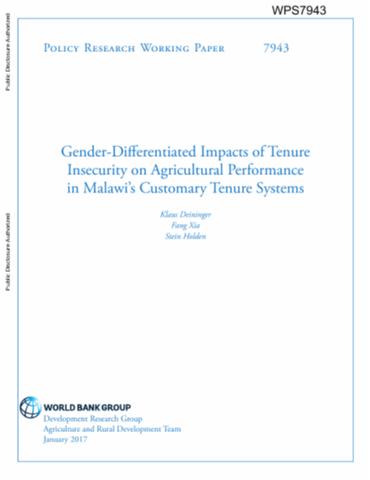Gender-Differentiated Impacts of Tenure Insecurity on Agricultural Performance in Malawi's Customary Tenure Systems
Many African countries rely on sporadic land transfers from customary to statutory domains to attract investment and improve agricultural performance. Data from 15,000 smallholders and 800 estates in Malawi allow exploring the long-term effects of such a strategy.




